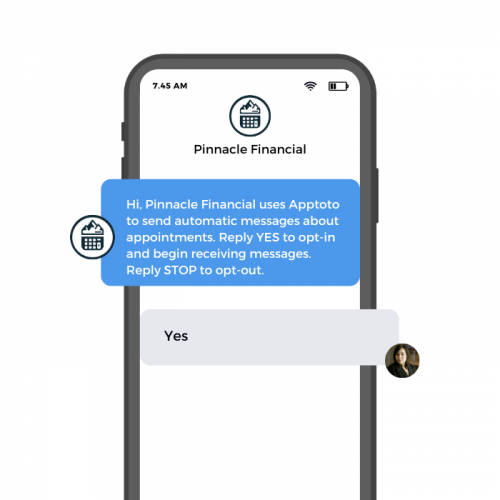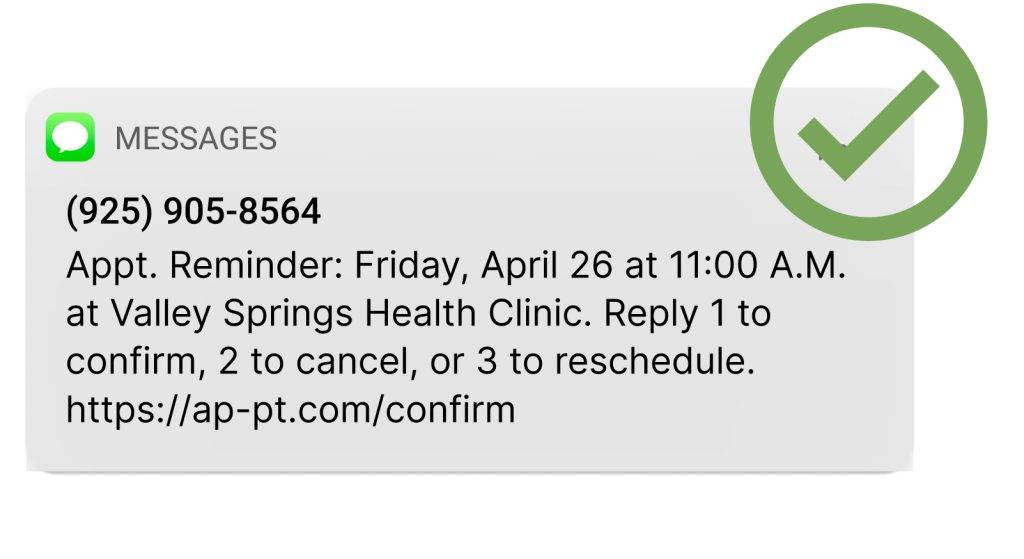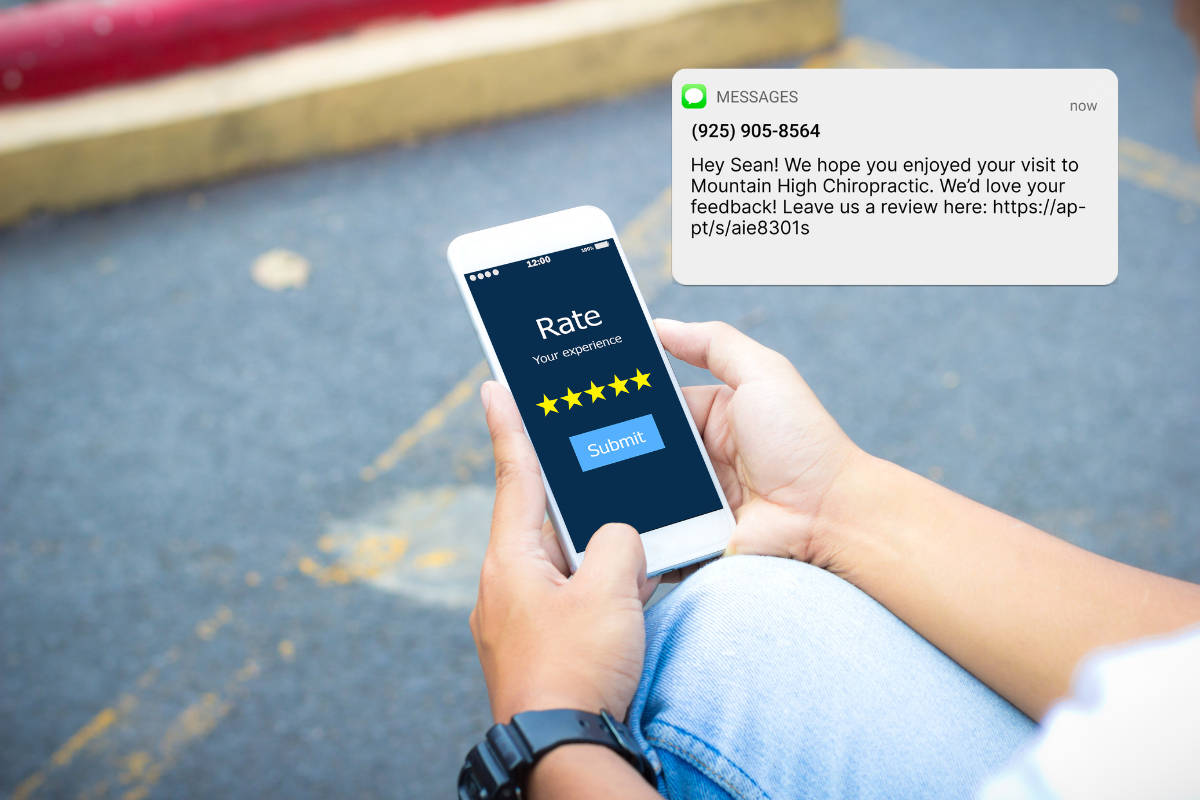Estimated reading time: 8 minutes
Ever wonder if someone else might be reading what you text your clients?
Spoiler alert: it’s not always just you and them.
Sometimes it’s their kid. Their partner. Or worse, someone you really didn’t intend.
Texting is fast, easy, and feels personal, which is exactly why so many businesses rely on it. But here’s what most don’t realize: standard SMS messages can be intercepted, stored, and even misused.
If your business handles sensitive info—health records, legal details, financial data—you could be opening the door to breaches, fines, and a whole lot of broken trust.
Let’s break down the risks and show you how to keep your client texts secure, compliant, and stress-free.
Can I use SMS text messages to communicate with clients securely?
SMS (Short Message Service) is the standard texting method used on most mobile phones. While fast and convenient, it wasn’t designed with modern data security in mind.
When you send a regular text message, it travels across cellular networks in a way that can leave it exposed at multiple points. Here are a few key risks:
- Limited protection: SMS messages may be protected in transit to your phone to some extent, but they aren’t secured throughout the entire journey.
- Carrier visibility: Your mobile carrier can see and store your message content
- Unsecured storage: Messages are typically stored as plain text on devices
- Interception risk: Messages can be captured during transmission using specialized equipment
For these reasons, standard SMS isn’t considered secure enough for sending sensitive client information like account numbers, health details, or confidential business matters.
Why Message Security Matters For Appointment-Based Businesses
For businesses that schedule appointments with clients, text message security isn’t just a technical concern. It has real-world impacts on your operations and client relationships.
When clients share their contact information and availability with you, they trust you’ll handle their data responsibly. Using insecure messaging methods can put that information at risk and potentially violate industry regulations.
Many appointment-based businesses handle sensitive information:
- Medical offices manage protected health information
- Legal practices discuss confidential case details
- Financial advisors and accountants handle personal financial data
- Real estate agents work with private property information
A data breach from insecure messaging can damage client trust, regulatory fines, and even lead to legal action. For example, healthcare providers using standard SMS for patient communications risk violating HIPAA if protected health information is exposed.
Common Text Messaging Security Risks
Understanding specific security risks helps businesses make better decisions about communicating with clients.
Smishing Attacks

Smishing (SMS phishing) occurs when someone sends fake text messages pretending to be from a trusted source. These messages trick recipients into sharing personal information or clicking dangerous links.
For example, a client might receive a message that appears to be from your business asking them to “confirm account details” or “click here to reschedule.” If they respond, their information goes straight to the scammer.
Message Interception
Standard text messages can be intercepted during transmission using techniques like:
- Cell tower spoofing (creating fake cell towers)
- SS7 network vulnerabilities (exploiting the backbone of mobile networks)
- SIM swapping (transferring someone’s phone number to a new SIM card)
Device Security Issue
Text messages are typically stored as written on mobile devices. If a business phone is lost, stolen, or compromised by malware, all client communications could be exposed.
This is especially problematic when staff use personal devices for work communications, as these may have weaker security measures than company-managed devices.
Best Practices For Texting Clients Securely
You can immediately improve your text message security and protect your clients and patients.
Use A Business Texting Platform
Business texting platforms like Apptoto offer more security features than personal texting. These platforms can:
- Keep client conversations organized and separate from personal messages
- Provide storage for message history
- Offer built-in appointment scheduling or integrate with your existing system
- Help manage message consent and opt-outs
Be Careful With Sensitive Information
Avoid sending certain types of information via standard SMS:
- Full account numbers
- Passwords or access codes
- Protected health information (PHI)
- Financial data
- Complete addresses (house number and street name together)

Instead, consider sending a link to a client portal where this information can be viewed safely.
Set Clear Communication Policies
Create guidelines for your team about what can and cannot be shared via text message. Make sure everyone understands:
- Which types of information require secure channels
- How to respond if a client sends sensitive information via text
- When to use alternative communication methods
Training your team on these policies helps prevent accidental security breaches.
Get And Document Client Consent
Before texting clients, always get their consent. This is not only good practice—it’s required by regulations like the Telephone Consumer Protection Act (TCPA).

Keep records of:
- When and how clients granted you permission to text them
- What types of messages have they agreed to receive
- Any opt-out requests
Appointment reminder systems like Apptoto can help track this consent automatically as part of the scheduling process.
Industry-Specific Security Considerations
Different industries have specific requirements for secure client communications.
Healthcare Providers
Healthcare providers must follow HIPAA regulations, which protect patient health information. For text communications, this means:
- Avoiding sending protected health information via standard SMS
- Using HIPAA-compliant messaging platforms when discussing health matters
- Keeping detailed records of all client communications
Even simple appointment reminders can cause problems if they include details about the appointment type or treatment.
Financial Services
Financial advisors and institutions must protect client financial information under regulations like the Gramm-Leach-Bliley Act (GLBA). Secure practices include:
- Discussing account details via a secure portal
- Verifying client identity before sharing information
- Maintaining records of all client communications
Legal Services
Attorneys must protect attorney-client privilege, which means keeping client communications confidential. Best practices include:
- Using secure messaging platforms for case discussions
- Avoiding detailed case information in standard text messages
- Implementing strong access controls for client communications
When Standard SMS Is Acceptable
Despite its limitations, standard SMS can still be appropriate for certain types of client communications.
Standard SMS works well for:
- Basic appointment reminders (without sensitive details)
- Office closure notifications
- General announcements
- Initial contact before moving to secure channels

For example, a text message saying “Reminder: You have an appointment tomorrow at 2:00 PM. Reply Y to confirm” doesn’t contain sensitive information and is generally acceptable to send via standard SMS.
The key is evaluating the content of each message. Standard SMS may be sufficient if the message doesn’t contain protected information or anything you wouldn’t want made public.
A Balanced Messaging Strategy
The most effective approach combines security with practicality. A balanced strategy might include:
- Using standard SMS for basic, non-sensitive communications
- Direct clients or patients to a secure portal for sharing private information and documents
- Training staff on when to use each communication channel
This approach protects sensitive information while making it easy for clients to communicate with your business.
Appointment management systems like Apptoto help implement this balanced approach by providing secure messaging features that integrate with your scheduling workflow. This makes it easier to maintain security without creating extra work for your team.
Security And Convenience In Client Messaging
Finding the right balance between security and convenience is key to effective client communications. While standard SMS has limitations, understanding them helps you make informed decisions about when and how to use it.
For appointment-based businesses, the goal is to create a communication system that protects client information while still being easy to use. This might mean using different tools for different types of messages, based on their content and sensitivity.
You can text clients confidently while protecting their information and your business by implementing appropriate security measures and clear communication policies. Try Apptoto’s secure messaging features with a 14-day free trial and see how easy it can be to balance security and convenience in your client communications.
FAQs About Texting Clients Securely
Using standard SMS texting to send protected health information (PHI) is not HIPAA compliant. However, sending a patient an appointment reminder that includes the appointment date and time (without any PHI) does not violate HIPAA.




